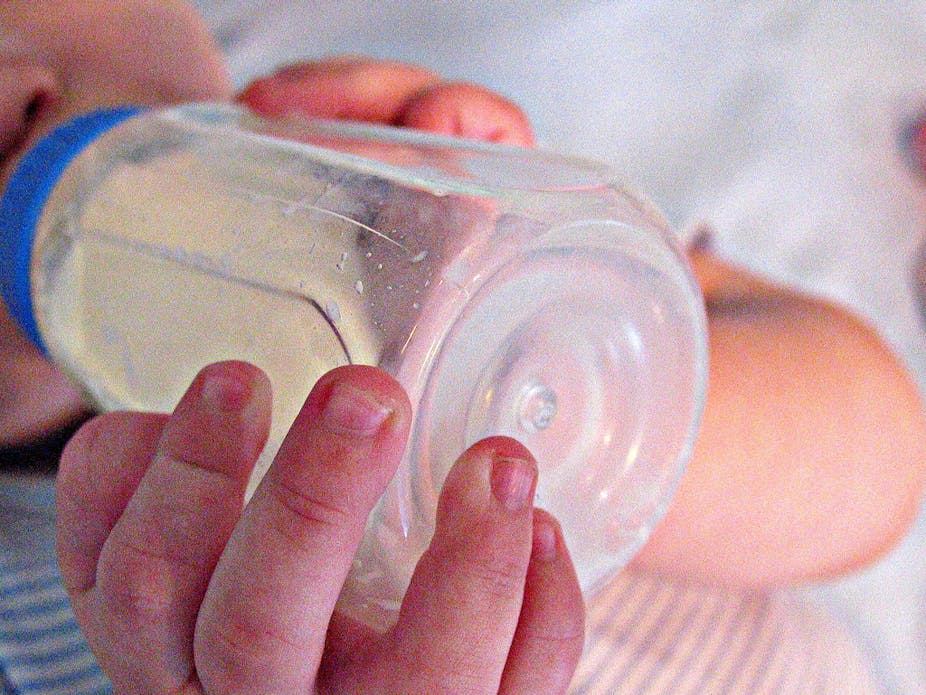Hypoallergenic infant formula is no more effective than regular cow’s milk at reducing the risk a baby will develop allergies, a new study has found.
Partially hydrolysed whey formulas (pHWFs), which contain smaller, milk protein–derived peptides, gained favour in Europe, Australia and the U.S. after a 2006 Cochrane literature review found evidence to suggest prolonged feeding with a hydrolysed formula compared to a cow’s milk formula reduced infant and childhood allergy.
But in a study published in the Journal of Allergy and Clinical Immunology, researchers from the University of Melbourne, Murdoch Children’s Research Institute, and the John Hunter Children’s Hospital showed that these specialised formulas did not stop allergies developing.
The trial involved 620 babies with a family history of allergies who were weaned onto either a pHWF, cow’s milk formula or a soy formula after they stopped breastfeeding.
“Skin prick tests to six common allergens (milk, egg, peanut, dust mite, rye grass and cat dander) were performed at 6, 12, and 24 months,” the report said, with further follow up at six or seven years of age.
“There was no evidence that infants allocated to the pHWF or the soy formula were at a lower risk of allergic manifestations in infancy compared with conventional formula,” the paper said.
“Despite current dietary guidelines, we found no evidence to support recommending the use of pHWF at weaning for the prevention of allergic disease in high-risk infants.”
Lead author David Hill, a Senior Consultant Allergist at the Murdoch Childrens Research Institute said the finding showed that families at high risk of allergy should continue to be encouraged to breastfeed where possible.
Dr Jennie Brand-Miller from the University of Sydney’s Boden Institute of Obesity, Nutrition, Exercise and Eating Disorders, who was not involved in the research, described it as a landmark study.
“The findings of this study will change current clinical practice and it will simplify the messages that health professionals need to give mothers and carers,” she said.
“It is a very high quality study for the following reasons: it is large and properly powered (ie the number of subjects recruited in sufficient to detect a difference if there is one), the participants were blinded and the findings are unambiguous.”
Dr Janet Green from the Faculty of Nursing, Midwifery and Health at the University of Technology, Sydney, said the results will shock some parents who had put their trust in hypoallergenic formulas.
“There’s a lot of guilt among mothers who are not able to breastfeed, so often if they are buying hypoallergenic formulas, they feel they are giving their babies the best,” said Dr Green, who was not involved in the study.
“There is this notion that ‘If I can’t provide it, at least this is the best that money can buy’ and to hear it’s only just as good as cow’s milk will shock a lot of people.”

